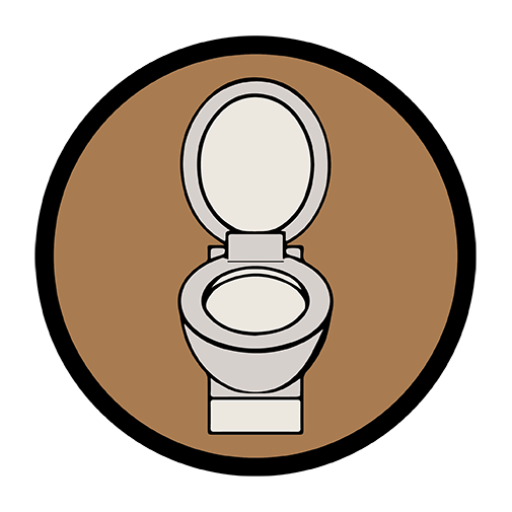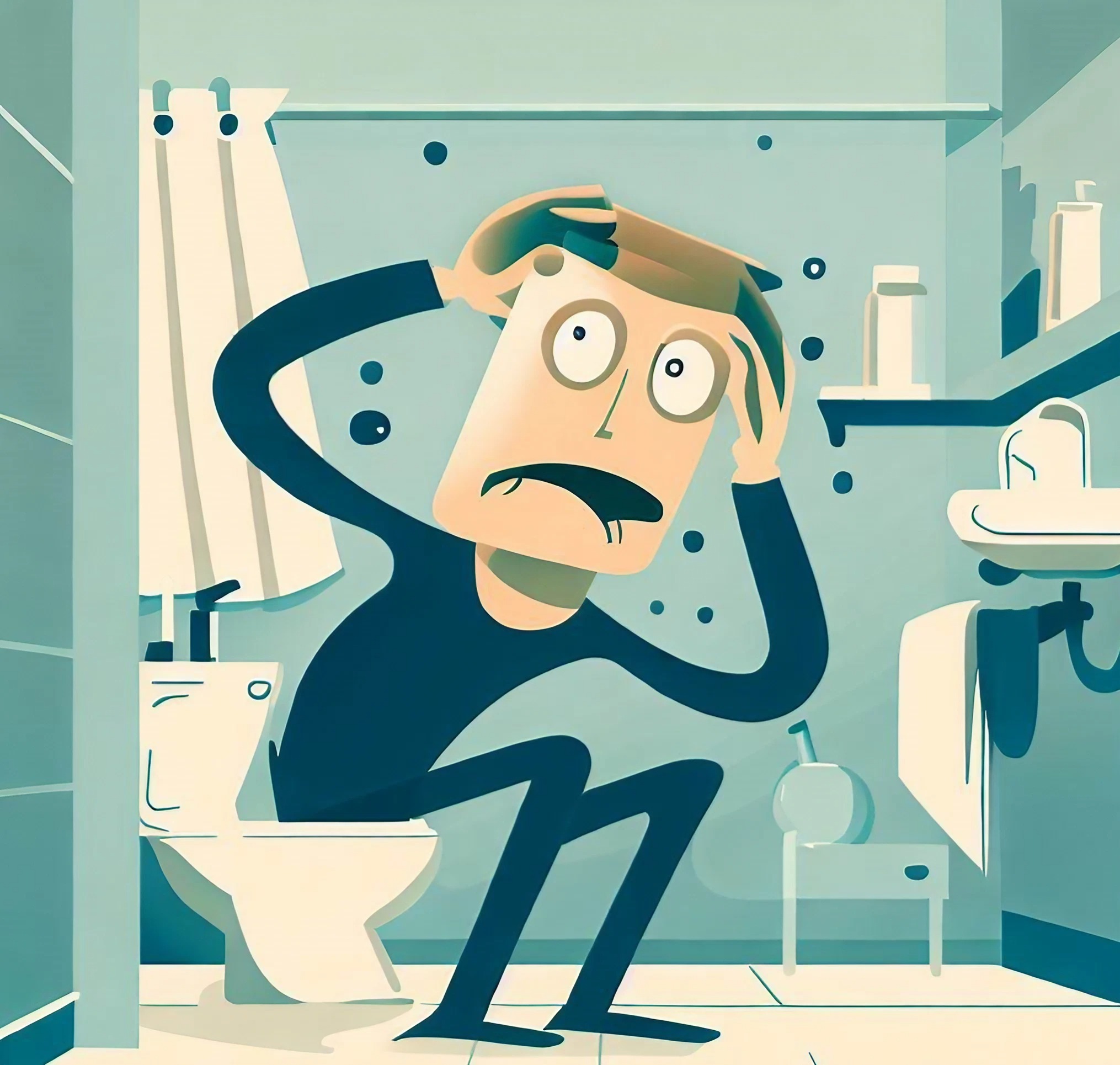A problem that could lead to more severe conditions
Poo anxiety is a very real and frequent issue. It can take many forms, including a dislike of using public restrooms, disguising bowel movements from a partner, or going to great measures to avoid using a restroom other than your own. In fact, it has a name for most severe variations: parcopresis, also known as shy bowel syndrome or poophobia.
“Shy bowel syndrome is a condition that refers to an individual that experiences difficulty or an inability to empty their bowels in the presence of others or in public toilets”, explains Josie Porter, an expert dietitian with the London-based Gut Health Clinic.
According to The Huffington Post, it’s also not an unusual type of social anxiety to experience. Simon R. Knowles, an Australian professor and clinical psychologist, discovered that 14% of college students would avoid using public facilities “for a bowel movement”. Instead, they would choose to go home, use a disabled restroom, or come back when it was quiet.
The verdict is still out on whether or not there is a gender difference at work, but some study indicates that women are more prone to experience a phobia of excrement than men. According to Knowles’ research, women are almost twice as likely to postpone using the bathroom to relieve themselves. This is probably due to the cultural legend that “girls don’t poop”.
Parcopresis vs Poophobia
Despite the fact that parcopresis and poophia are sometimes confused, they are slightly distinct. A psychogenic disorder called parcopresis, often known as shy bowel syndrome, causes difficulty or an inability to defecate in public places like restrooms, while the unreasonable fear of excrement or feces is known as poophobia. It is a form of phobia that has the tendency to cause severe distress and anxiety but does not always result in social isolation or a need to avoid being out in public.
“Some researchers have proposed that women may be at greater risk due to the stigma surrounding women going to the toilet. This is rooted in societal and cultural beliefs that women are delicate and have to be private”, Porter adds.
“Consequently, some women may feel fear of being judged by others while using public toilets whereby others may be present”.
Regrettably, rather of being a peaceful retreat where one can find relief, women’s bathrooms frequently become hubs of activity.
“Women in toilets tend to congregate”, says Ann Allcoat, trustee of the UK Paruresis Trust, which supports people who struggle to poop when others are in the vicinity. “And there are very often queues in [women’s] toilets so you can be heard and you’re also keeping people waiting, which is another thing we’re afraid of”.
Women are also more prone to have gastrointestinal disorders like irritable bowel syndrome, and according to Knowles, those who have these disorders may be more susceptible to develop shy bowel.
Yet, according to Anxiety UK’s operations director, Dave Smithson, there is evidence suggesting men are more likely than women to experience anxiety. According to him, problems with the bathroom can affect both genders.
In the end, there isn’t enough information on the subject, but it is evident that defying nature’s call might have negative effects such as hemorrhoids, bowel perforations, and constipation.
“Be mindful of the more permanent, long-term damage you could do physically to yourself if you don’t [seek help]”, Smithson warns.
The effect on daily life comes next. People with shy bowel syndrome may not want to participate in social events, work or school, or even desire to go on vacation.
“For individuals experiencing extreme forms of shy bowel, they have to plan their everyday activities so they can get back to the toilet… It can be a significant burden”, Knowles, a person who helps people get over their fear, says.
People frequently try to avoid problems by holding it in till it aches, coming up with reasons to go home, and avoiding particular meals, but these strategies aren’t always the best.
“With any form of anxiety or fear of something, it’s about getting some help”, Smithson gives advice, mentioning common treatments like anxiety medication or therapy to learn coping mechanisms.
Porter offers a number of useful suggestions that might make a big impact, such putting down extra toilet paper to cover up sounds, packing a room spray to cover up unwanted odors, or putting on a pair of headphones to listen to a soothing podcast or playlist.
“If it’s the hygiene that puts you off, try packing a mini bag of wet wipes with you and some hand sanitizer”, She advises, adding that using relaxation techniques can also help with symptoms of stress or anxiety. “Deep breathing exercises, mindfulness meditation, and progressive muscle relaxation are just some strategies you can try before or during to help manage symptoms of shy bowel syndrome”.
According to counselor Tina MacDonald, it’s crucial to consider when and how the anxiety started, to possibly try “exposure therapy”—in which patients first try using the restroom when a loved one is home before working up to using another location—and to start talking to friends.
In the end, Porter says, it’s crucial to keep in mind that this is not unusual. There are probably a lot of people feeling the same way as you in the public restrooms.
Additionally, MacDonald thinks “this is a time for us as a society to change the way we talk about some subjects that still feel a bit on the taboo side” following the death of writer Deborah James from bowel cancer last year and the establishment of her Bowel Babe fund.
While there has historically been stigma associated with both bowels and mental health, Knowles concurred that it is time to overcome this and raise awareness of how widespread shy bowel syndrome is. This actually exists.

